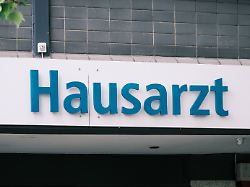Higher equity should help
Union politician complains about “flat rate mentality” in the GKV
08/13/2023 06:19 am
The health policy spokesman for the Union faction calls for new tariff models in statutory health insurance. Insured persons should be rewarded for going to their family doctor before going to expensive specialists. It is also conceivable that patients with very frequent appointments will be asked to pay.
In view of the growing deficits in the statutory health insurance funds, the Union has called for a higher co-payment by the insured and new tariff models. “We have to end the widespread flat-rate mentality in statutory health insurance,” said the health policy spokesman for the Union parliamentary group, Tino Sorge, the editorial network Germany.
Specifically, the CDU politician calls, among other things, for a “pilot model” in which insured persons undertake to always go to their family doctor before new treatment and to be referred from there to a specialist if necessary. There should be a bonus for that. The CDU politician also advocates tariffs with a certain personal contribution, which in return have reduced contribution rates.
It is also possible to only charge a personal contribution in the event of excessive use of medical services, in which case the chronically ill or cases of hardship should be excluded, said the CDU politician. “Many think I’m paying contributions, so I’m entitled to whatever amount I want,” he criticized. “Nobody wants to cut important services, but we need more personal participation and responsibility, more cost sensitivity, more control and more flexibility,” said Sorge. Demographic change is putting healthcare under massive pressure. “The system is increasingly living beyond its means,” argued the health expert.
A deficit of around 17 billion euros was expected for statutory health insurance in the current year. For 2024, health insurance companies are forecasting a minus of up to seven billion euros.
